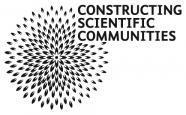“Why, Poison yours – but don’t make me a prey to Vaccination!” Songs of the Nineteenth-Century Anti-Vaccination Movement
Back in May Constructing Scientific Communities organised an evening event at the Royal College of Surgeons’ Hunterian Museum to help celebrate the opening of our exhibition there, Vaccination: Medicine and the Masses, which explored the history of vaccination from the eighteenth century to the present. During the event vistors were able to enjoy an after-hours browse of the exhibition, watch a selection of public health videos about vaccination that spanned the twentieth century, and hear a talk on pathology and public health from medical historian Richard Barnett, author of The Sick Rose.
Visitors were also encouraged to explore another aspect of vaccination’s history: the anti-vaccination movement. Resistance to vaccination has existed as long as the procedure itself and as part of the exhibition (and wider Constructing Scientific Communities project) we have been keen to explore this issue, still resonant today. In the nineteenth century, particularly in the later decades, the anti-vaccination movement was fierce in Britain. The implementation of the 1853 Vaccination Act made vaccination compulsory for all babies aged three months and under; but it also had the effect of ramping up resistance to the procedure, as some protested the state’s intervention on a matter that many thought should be down to parents’ individual choice. In a debate that would be echoed in those still occurring today, vaccination sceptics took a number of tactics, questioning the effectiveness and safety of the procedure, challenging the hierarchical structure of medicine from which vaccination emerged, and publicising traumatic and devastating accounts where it was alleged that vaccinations had caused sickness or even death. These sentiments were in turn challenged by the Victorian medical profession, who prided themselves on the role vaccination had played in the decline of smallpox infection during the century. Debate between the two sides was often deeply antagonistic; vaccinating doctors were described as “the Anti-Christ of Medicine” by their most virulent opponents, while representing the medical establishment, the Lancet in 1896 lamented the fate of unvaccinated children, who they described as the “unfortunate offspring of those who, as regards capacity of intelligent reasoning, can certainly not be regarded as affording an example of the survival of the fittest.”
Such colourful language was employed by both sides, and for anti-vaccinators, often came together in songs and poems that were published in the various anti-vaccination journals that sprung up in the late nineteenth century, and which would probably have been sung at rallies and meetings for the cause. At our evening event we were fortunate enough to host Oskar Cox Jensen, cultural historian, research fellow at King’s College London and a musician in his own right with a special interest in nineteenth-century balladry, who entertained the audience with some of the greatest hits of the nineteenth-century anti-vaccination movement. In the hallowed confines of the Royal College of Surgeons Library, no doubt causing a large number of Victorian surgeons to roll aghast in their graves, Oskar sang three songs, ‘Vaccination’, ‘Medical Orthodoxy’ and ‘The Wonderful Pill or a Cure for the World’, all of which satirised doctors, their vaccinations and general unpopularity with many members of the public. All the songs were originally set (and sung by Oskar) to the tunes of popular contemporary ballads, and for nineteenth-century audiences would have been quickly recognizable, increasing their appeal and impact.
When it comes to nineteenth-century medicine few areas conjured up as much drama as vaccination did. With satirical pamphlets, caricatures, poems and songs, the anti-vaccination movement often relied on artistic and literary tools to try and gain popular support for their campaign. So we invite you to listen and enjoy “Medical Orthodoxy” (to the tune of “The Vicar of Bray”) and “Vaccination” (to the tune of “Bow Wow Wow) sung by Oskar, along with able accompaniment from the crowd.
Special thanks to Hayley Kruger and the RCS team for their help in organising the event and to Geoff Belknap and James Thorniley for AV assistance.



